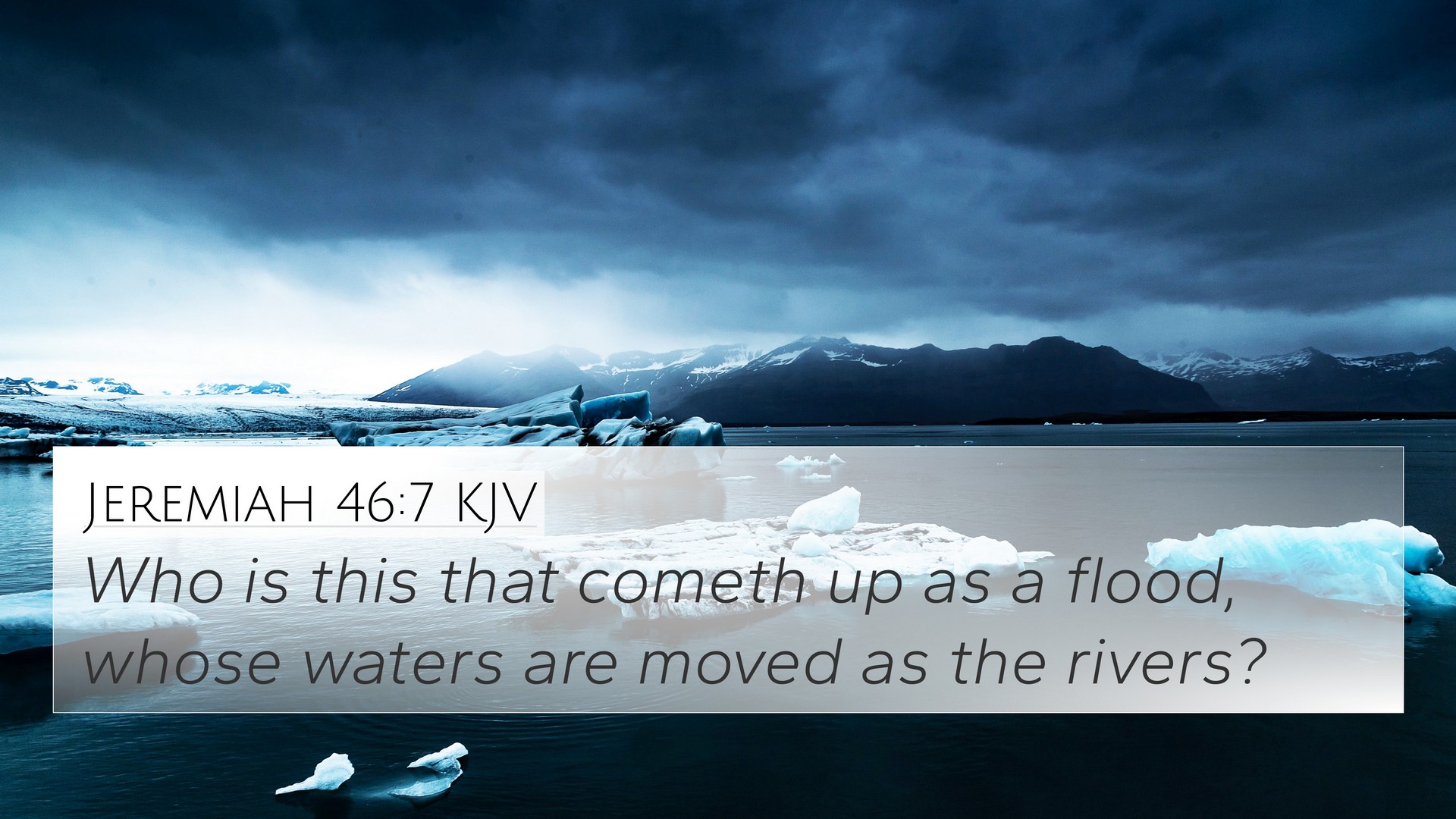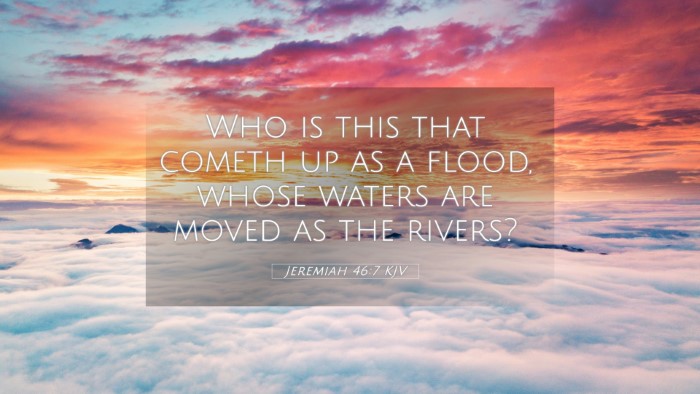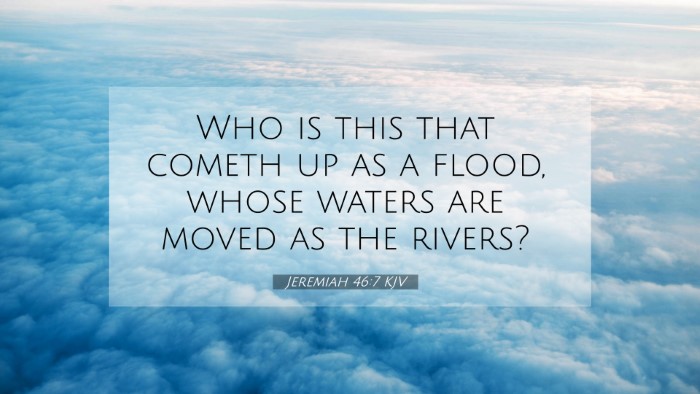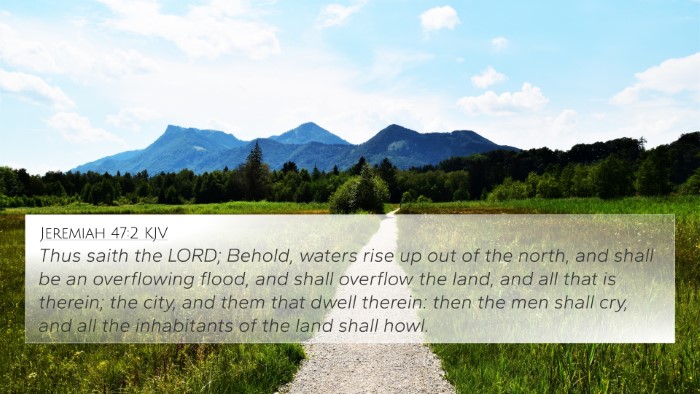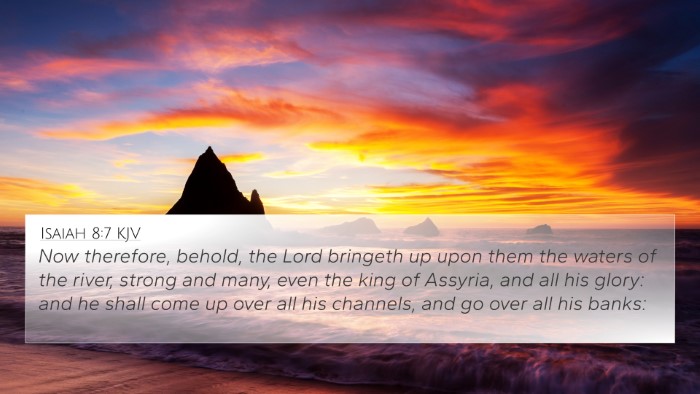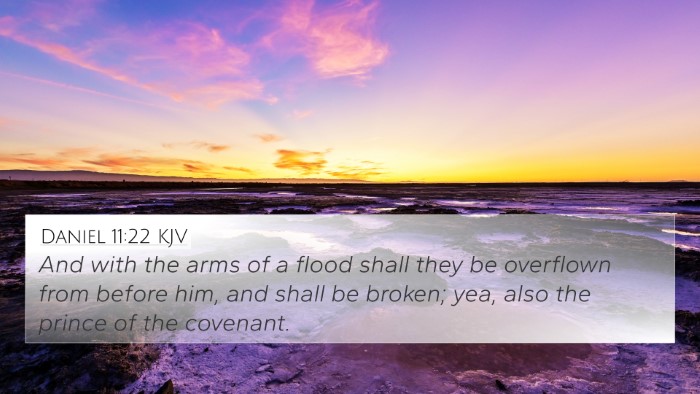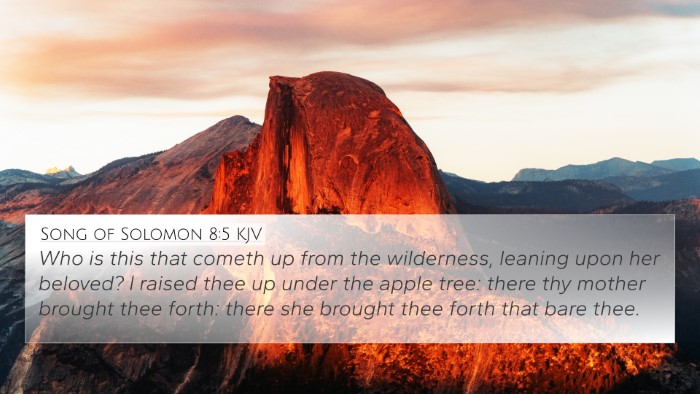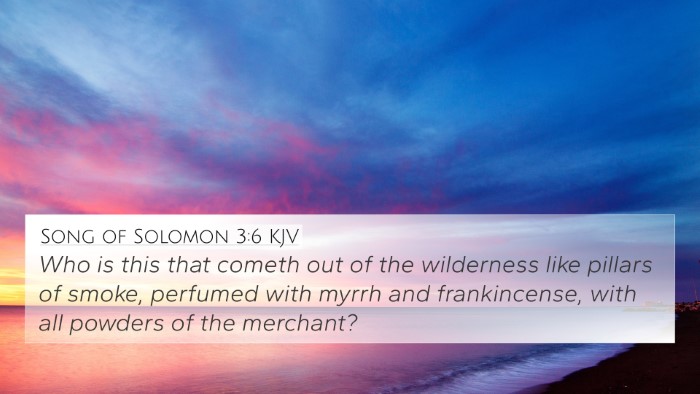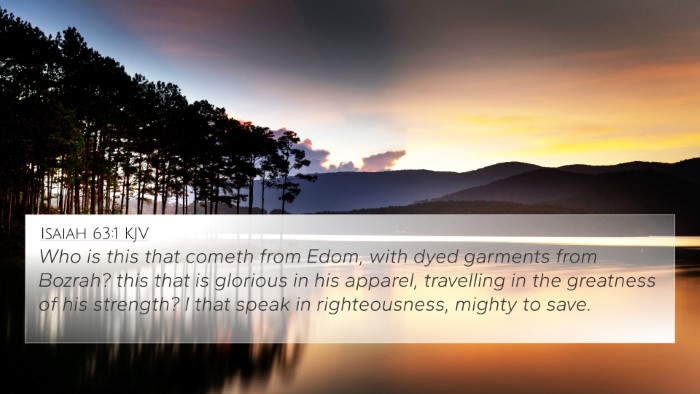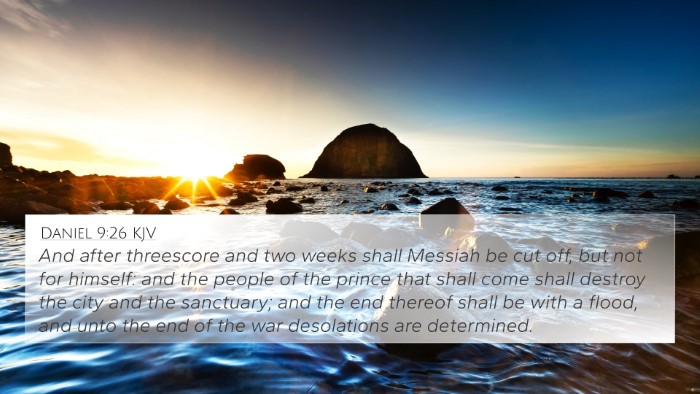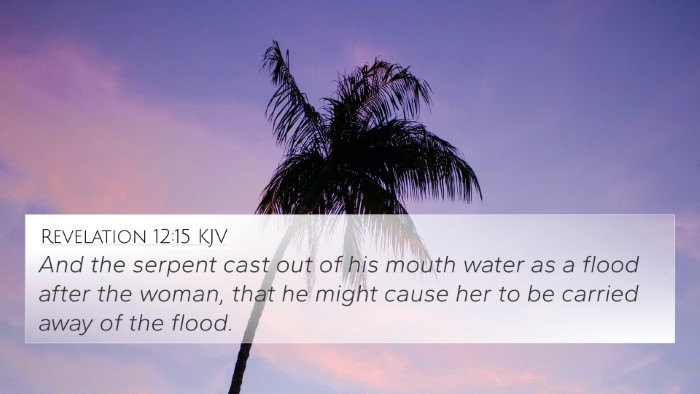Understanding Jeremiah 46:7
Jeremiah 46:7 presents a unique scene in the prophetic literature, capturing both historical and theological significance. This verse is set against the backdrop of God’s pronouncement of judgment against Egypt, highlighting the futility of their efforts in the face of divine will.
Verse Text
Jeremiah 46:7 (KJV): "Who is this that cometh up as a flood, whose waters are moved as the rivers?"
Key Themes
- Divine Judgment: This verse prompts readers to reflect on God’s sovereignty over nations and His judgment upon those who oppose Him.
- Imagery of Flood: The flood imagery signifies overwhelming power and destruction, representing the impending doom for Egypt.
- Human Efforts vs. Divine Control: The question posed draws attention to the inability of human forces to withstand God’s plan.
Commentary Insights
Matthew Henry: Henry indicates that this verse symbolizes the invasion of Babylon as a mighty force, akin to a flood, emphasizing the power that can sweep away the proud. He highlights God's ability to use even foreign nations as instruments of His judgment.
Albert Barnes: Barnes interprets the "flood" as a metaphor for the mighty armies approaching Egypt, drawing parallels to previous judgment against Israel, showcasing a pattern in God’s dealings with nations. His commentary stresses that just as rivers overwhelm the banks, so too does God's power overwhelm human arrogance.
Adam Clarke: Clarke adds to the understanding by providing historical context. He notes that the Egyptians were known for their reliance on their military strength, which is here compared to a flood that they cannot control. Clarke reinforces the idea that God ultimately holds dominion over all nations.
Bible Cross References
- Isaiah 8:7-8: Describes the Assyrian invasion, similar to a flood, echoing themes of judgment.
- Ezekiel 30:3: Illustrates the day of the Lord, emphasizing that it will be a time of great turmoil for Egypt.
- Revelation 12:15: Mentions a flood sent to pursue the woman, signifying ongoing themes of persecution and divine intervention.
- Psalm 93:3: Declares that floods lift up their voices, but the Lord is mightier than the waves, reinforcing God's authority over chaos.
- Proverbs 21:30: Suggests the futility of human plans against God's overarching wisdom.
- Isaiah 59:19: Highlights that when the enemy comes in like a flood, the Spirit of the Lord will raise a standard, assuring God's protection.
- Jeremiah 51:42: Refers to the sea rising over Babylon, which can be linked to the flood imagery in Jeremiah 46:7.
- Daniel 9:26: Speaks of destruction that comes suddenly, akin to a flood, linking to divine judgment themes.
- Joel 3:14: Envisions multitudes in the valley of decision, showcasing the impending judgment that floods through nations.
- Luke 6:48: Contains Jesus' parable of the man whose house stands strong against the flood, showing the contrast between divine protection and human vulnerability.
Exploring Connections Between Bible Verses
This verse's themes resonate throughout scripture, particularly in the context of divine judgment and the overwhelming power of God against human pride. The connections between Jeremiah 46:7 and the referenced verses create a tapestry that highlights:
- The ongoing narrative of God’s sovereignty displayed across both the Old and New Testaments.
- How different biblical authors address similar themes of divine intervention and judgment.
- The recurring flood motif that signifies both destruction and the faithful remnant saved through grace.
Conclusion
Jeremiah 46:7 serves as a profound reminder of God's omnipotence and His ultimate plan for nations. Through cross-referencing and thematic connections, readers can witness the harmonious dialogue across the scriptures, revealing deeper insights into God's redemptive story. This verse, while part of a specific prophetic context, invites all believers to reflect on their standing before the Creator and the inevitable triumph of His will over human endeavors.
